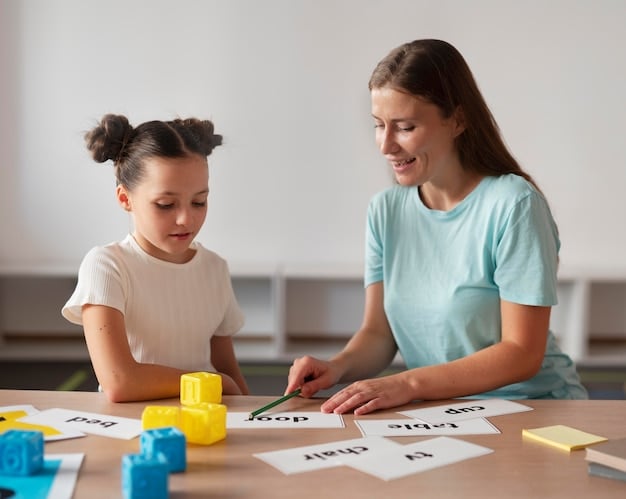Developing Your CDA Professional Philosophy Statement
 The CDA (Child Development Associate) Credential requires candidates to compile a comprehensive professional portfolio, demonstrating their knowledge, skills, and philosophy in #early-childhood-education. One of the key elements of this portfolio is the Professional Philosophy Statement, a reflective piece where candidates articulate their personal beliefs, values, and practices as they relate to the field of #early-childhood education.
The CDA (Child Development Associate) Credential requires candidates to compile a comprehensive professional portfolio, demonstrating their knowledge, skills, and philosophy in #early-childhood-education. One of the key elements of this portfolio is the Professional Philosophy Statement, a reflective piece where candidates articulate their personal beliefs, values, and practices as they relate to the field of #early-childhood education.
What Is the Professional Philosophy Statement?
The Professional Philosophy Statement is a thoughtful reflection on your core beliefs and approaches to working with young children and their families. It should encapsulate your guiding principles as an early childhood #educator and showcase your commitment to fostering a positive and enriching learning environment. This statement allows you to clearly communicate your philosophy regarding child #development, learning, and care to assessors, potential employers, and families.
The Best Way to Develop Your Professional Philosophy Statement
- Reflect on Core Beliefs: Start by reflecting on what you value most in early childhood education. Consider the fundamental principles that drive your daily work with children. What do you believe is essential for children''s #growth-and-development? How do you view the role of #educators, families, and the learning environment in a child''s life? Jot down your core beliefs about children’s learning, the importance of #play, and the social-emotional development of young children.
For example, if you believe children learn best through play, your statement might emphasize the importance of hands-on exploration and discovery in your teaching practice. Or, if you believe in the strong partnership between families and educators, you might focus on the role of communication and collaboration with #parents.
- Connect Your Beliefs to Best Practices: Once you''ve identified your core beliefs, the next step is to connect these beliefs to your everyday practice. Consider how your philosophy aligns with #developmentally appropriate practices, which prioritize nurturing children’s individual learning needs in a supportive environment. Think about how you implement strategies such as observing children’s development, fostering independence, or creating a rich, engaging learning space.
For instance, if you believe in encouraging independence, describe how you create an environment that allows children to make choices and develop autonomy. If you prioritize social-emotional learning, discuss how you foster a #classroom-environment where children feel emotionally #safe and supported.
- Support Your Philosophy with Personal Experiences: To strengthen your statement, include specific examples from your professional experience that illustrate how you live out your philosophy. These anecdotes provide context and demonstrate how your beliefs translate into action. Share a meaningful moment where you observed significant growth in a child, a successful partnership with a family, or an instance where your teaching approach made a noticeable difference.
- Stay Child-Focused and Positive: Throughout your statement, maintain a positive, child-centered tone. Highlight the ways in which your philosophy supports the well-being, growth, and development of the children in your care. Avoid focusing on negative aspects or challenges, and instead emphasize how your approach helps overcome obstacles to create a nurturing learning environment.
- Be Concise and Clear: While it’s important to be thoughtful and reflective, the statement should also be concise—usually about one page in length. Ensure your ideas are clear, well-organized, and avoid jargon. Your goal is to present a philosophy that is easily understood by assessors and others in the field.
- Revise and Edit: Developing your Professional Philosophy Statement is a process. After writing the initial draft, take the time to revise and refine it. Read through it to ensure clarity and coherence. Ask a colleague, mentor, or supervisor to review it and provide feedback. This will help you ensure your statement aligns with the expectations of the CDA program and accurately represents your beliefs and practices.
Your Professional Philosophy Statement is a critical component of the CDA Professional Portfolio, allowing you to present your unique approach to early childhood education. By reflecting on your core beliefs, linking them to best practices, and drawing from personal experiences, you can #craft a compelling statement that highlights your commitment to fostering the #growth-and development of young children. As you develop your statement, remember that it is an evolving reflection of your growth as an educator—one that will continue to shape your #career-in-early-childhood-education.
Want more information regarding completing your CDA Credential?
- Check out the CDA Club - Peers & PD Specialists, a public Facebook group where you can connect with like-minded individuals, access valuable resources, and stay informed about the latest updates.
- Birth to Five CDA Credential with Portfolio Review
- CDA Bridge Bundle: Family Child Care
- CDA Bridge Bundle: Infant/Toddler without Portfolio Review
- CDA Bridge Bundle: Infant/Toddler
- CDA Bridge Bundle: Preschool
- CDA Bridge Bundle: Family Child Care without Portfolio Review
- CDA Infant/Toddler Credential with Portfolio Review
- CDA Bridge Bundle: Preschool without Portfolio Review
- CDA Preschool Credential with Portfolio Review
- CDA Family Child Care Credential with Portfolio Review
- Developing Your CDA Professional Philosophy Statement
- The PD Specialist and Scheduling a Verification Visit
- CDA Portfolio Checklist: A Guide for CDA Candidates
- Building Your CDA Professional Portfolio: Understanding the Cover Sheet
- Preparing for the CDA Verification Visit: A Comprehensive Guide
- Understanding the CDA Verification Visit: What to Expect and How to Prepare
- How to Build a Winning Professional Portfolio for Your CDA Certification
- What is a Professional Philosophy Statement and how do I write one?
- Beyond the Basics: Insider Tips for Earning Your CDA Credential
- Building a Strong Professional Portfolio for Your CDA Credential
- Earn your CDA in Montana
- Building Your CDA Professional Portfolio
- Understanding the CDA Philosophy Statement
- Earning your CDA in Oklahoma
- Earning Your CDA in California: Start Today!